Europe’s greatest late-night cities
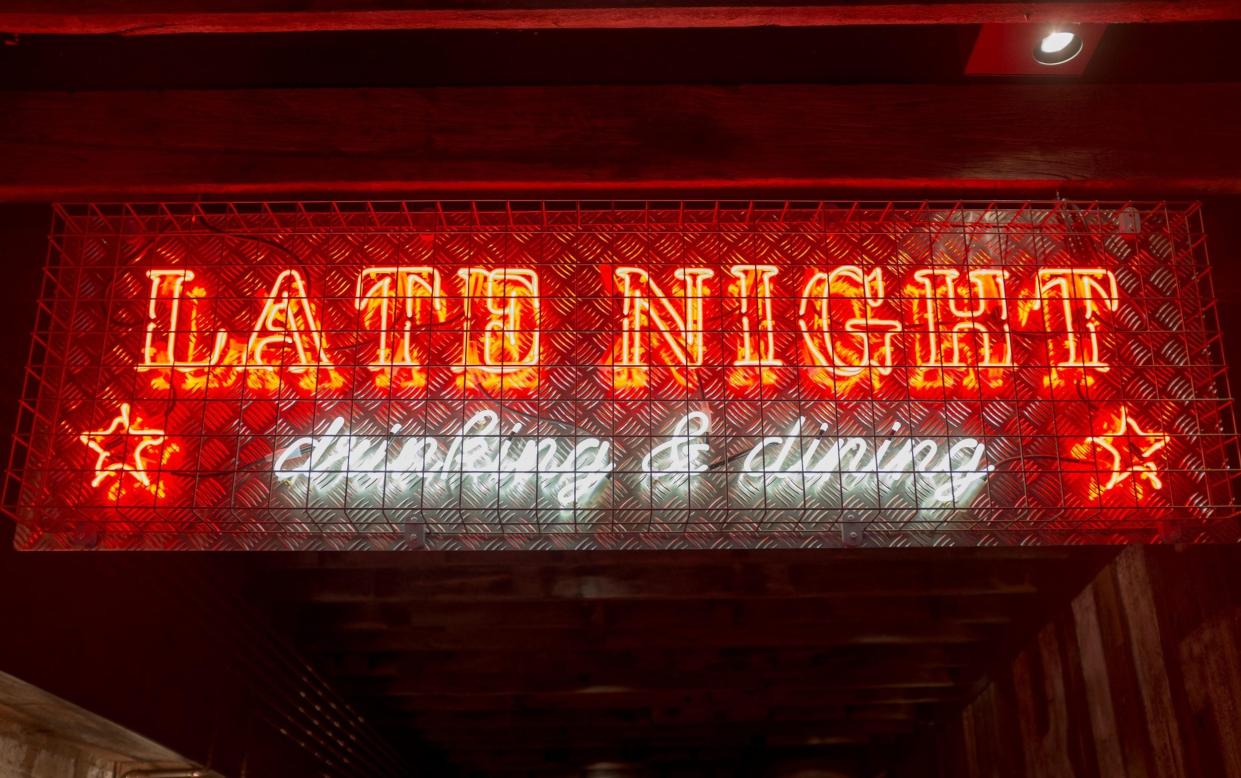
The best nights out are the ones that stretch into the evening – suddenly it’s 4am, and you’re dancing in a bar, and you can’t quite remember the circumstances that led there. Since the pandemic – and most likely before then, too – London, despite being a world capital, has lost more than 1,000 venues that would make this possible, with once-24 hour neighbourhoods like Soho fielding the brunt of this loss. A combination of rising costs, a lack of late licences and struggling transport infrastructure has led to a dismal late-night culture: essentially, after midnight in central London, it is difficult to find things to do.
Italian cities are known for their late-night dining, where families gather over perfectly cooked dinner long after the sun sets, and yet in Milan, this tradition is also under threat thanks to overenthusiastic tourists in the busy Porta Venezia area. A temporary ban on takeaway food being sold after midnight was implemented on the weekends in Milan after residents, alarmed by rowdy revellers, requested the change.
“I believe that cities should also rest like us humans and have timetables that are a little more suitable for everyone,” said Giuseppe Sala, the city’s mayor, as the changes were enacted. If you are looking to follow that timeline, an aperitivo at Lacerba comes highly recommended.
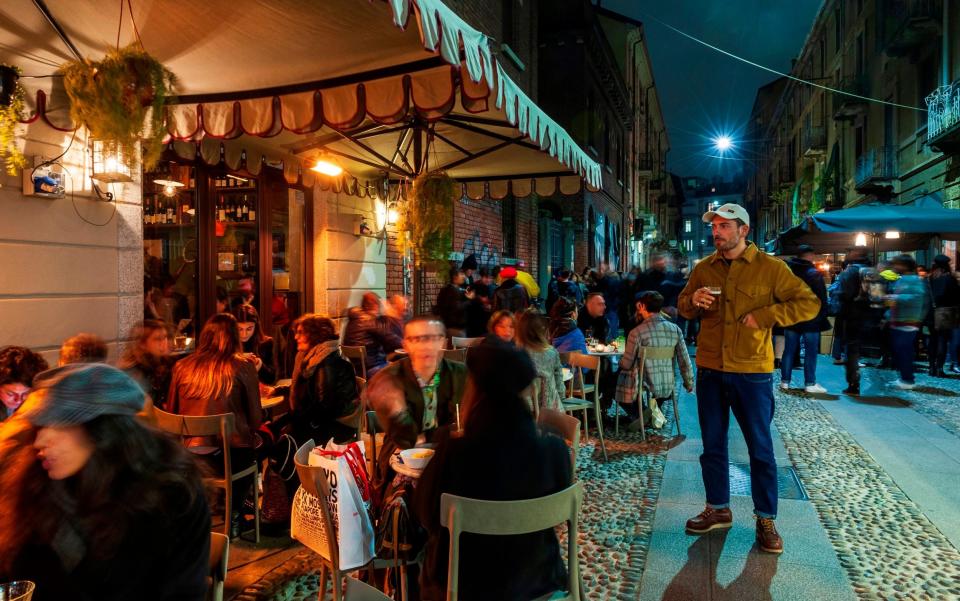
Happily, this isn’t the case across Europe. Borne on by the milder weather, longer working hours and midday siestas, it is perfectly feasible to be eating dinner at half nine and having drinks into the early hours. These are the best late-night cities across the continent.
Athens
Once a place for a stopover before heading out to the islands, Athens is now a booming destination in itself. Attractions such as the Acropolis are bustling in the day, and by night, those history-hungry visitors are, simply, ravenous.
The Greek capital isn’t a city solely for dancing into the early hours, either. As is the case across southern Europe, warmer evenings mean a culture of sitting out on a terrace, drinking slowly and eating progressively larger portions of mezze well into the night. The best spots are in the Kypseli neighbourhood, where punters spill out onto the pavement, and the weekend crowds are a joy to be among. Try Au Revoir, the oldest bar in the city, which was a favourite of Frank Sinatra.
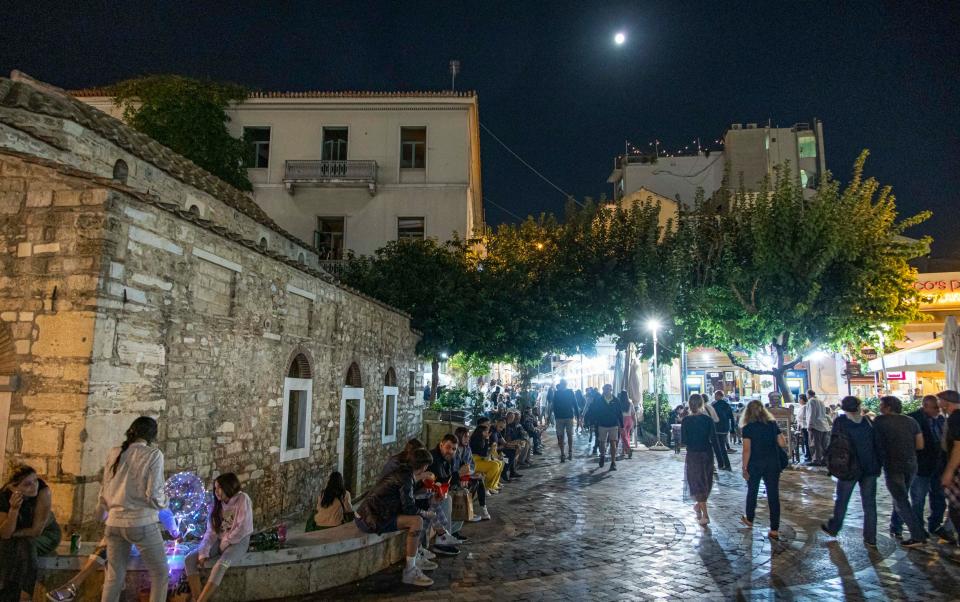
When it’s time to call it a night, some Metro and tram lines run until 2am and others until 12am. There are plenty of cheap taxis on hand to whisk you back to your hotel.
Read our guide to Athens’s nightlife here.
Berlin
If a night out necessarily means a nightclub, Berlin remains the European high point. The truly committed will already know of Berghain, the legendary former power station in the east of the city. Tales of six-hour queues, and the very particular dress code rules, have become the stuff of myth. No photographs are allowed inside – regulars report teeming dancefloors and enviable DJ sets on the upper floors, and something seedier on the lower levels. Partying starts after midnight, and a good session should last until way into the next day.

If you don’t pass the mercurial taste of bouncer Sven, however, the city has a whole host of alternative options, from the old-fashioned to the intimidatingly modern. Serving beer 24 hours a day, a trip to Bei Schlawinchen is a rite of passage. Or soak up a night of drinking at Melek Pastanesi, which serves baklava around the clock.
If the hotel bed beckons, the U-Bahn is open from 4am to 1am and on weekends it runs a 24-hour service.
Read our guide to Berlin’s nightlife here.
Madrid
In Spain, the late-night culture is a matter of national identity. So much so that when a government minister suggested restaurants close earlier than the usual one in the morning, the public responded with uproar. In fact, its closing times are – even by continental standards – a cut above. According to Spanish newspaper El Pais, the most popular time to have dinner is 9.20pm; research by the Spanish government suggests that its countrymen sleep considerably less than the European average. Still, this stubborn refusal to heed medical advice results in remarkable outdoor terraces and open-air dining rooms.
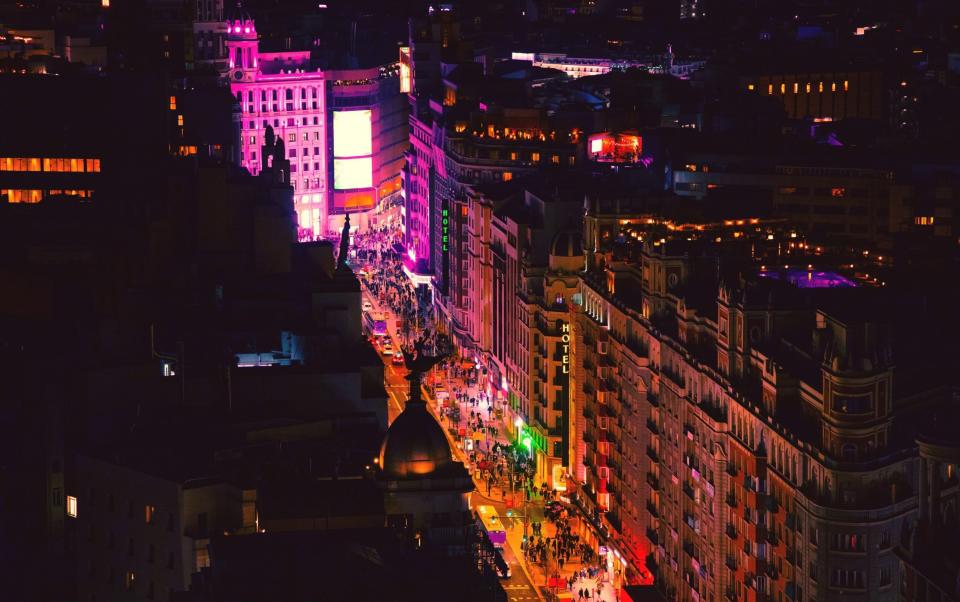
Madrid is the exemplary city for this, and a wander around the capital’s cobbled streets at night will inevitably reveal its sleep-phobic citizens. Head to Toni2, a lively piano bar, to hear Spanish singalongs throughout the night – it closes at 6am on most days. End the evening with a trip to San Ginés, a traditional chocolatier open 24 hours from Thursday to Sunday and until midnight Monday to Wednesday.
When it’s time to head back to the hotel, Madrid’s Metro is the best bet. It runs from 6am to 1.30am, with trains departing every 15 minutes after midnight.
Read our guide to Madrid’s nightlife here.
Amsterdam
British tourists are still attracted to Amsterdam, despite numerous attempts by the Netherlands to keep stag parties away. Its reputation as a place for marauding travellers might be problematic for locals and visitors looking for a quieter type of holiday, but it does mean the nightlife is plentiful. Those who want to dine into the night are recommended to head to local favourite BAK, or to Daalder, whose menu offers a much-refined stroopwafel. Clubs are, of course, plentiful (favourites include De Melkweg, where weekday performances make way for wilder parties on Friday and Saturday). And if you are trying to avoid the debauchery of some of the more central spots, places like De Japanner, a restaurant group serving izakaya-inspired finger food, stay open until the early hours.
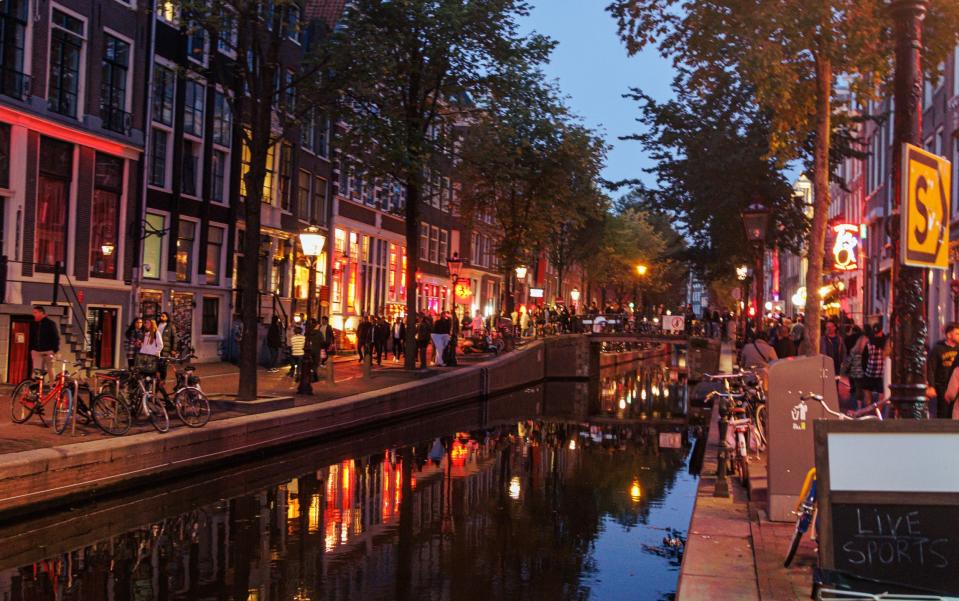
Ready to hit the hotel pillow? Amsterdam is a safe and very walkable city. The last tram leaves Central Station at 12.15am and a night bus service takes its place.
Read our guide to Amsterdam’s nightlife here.

